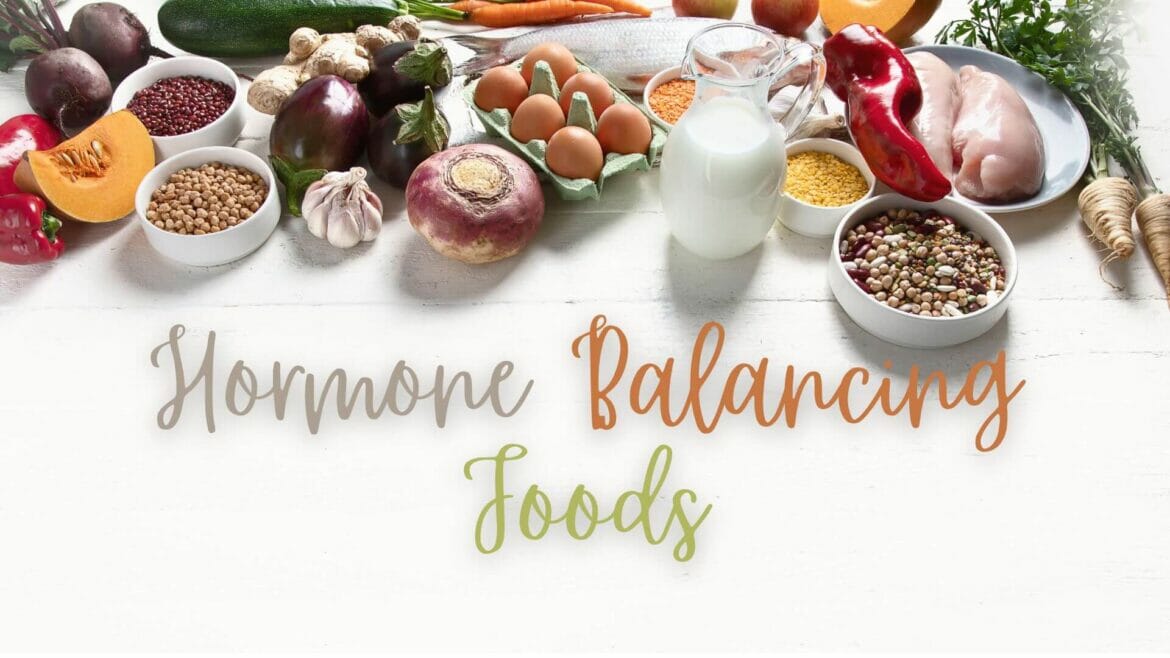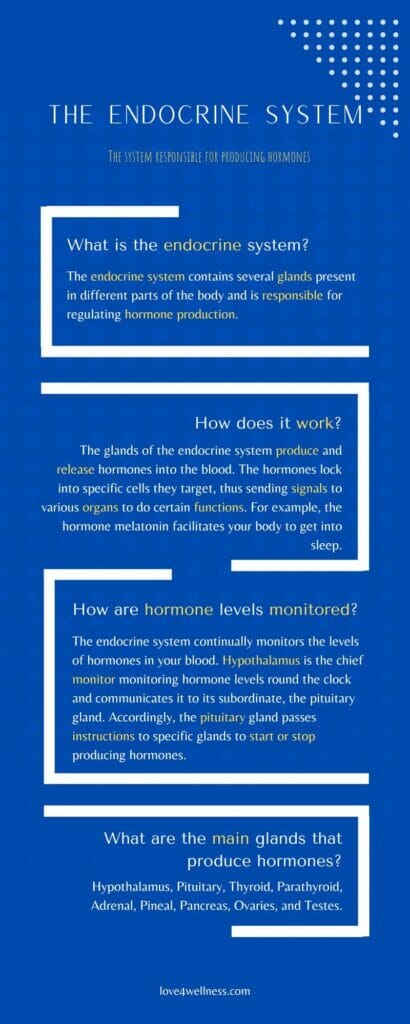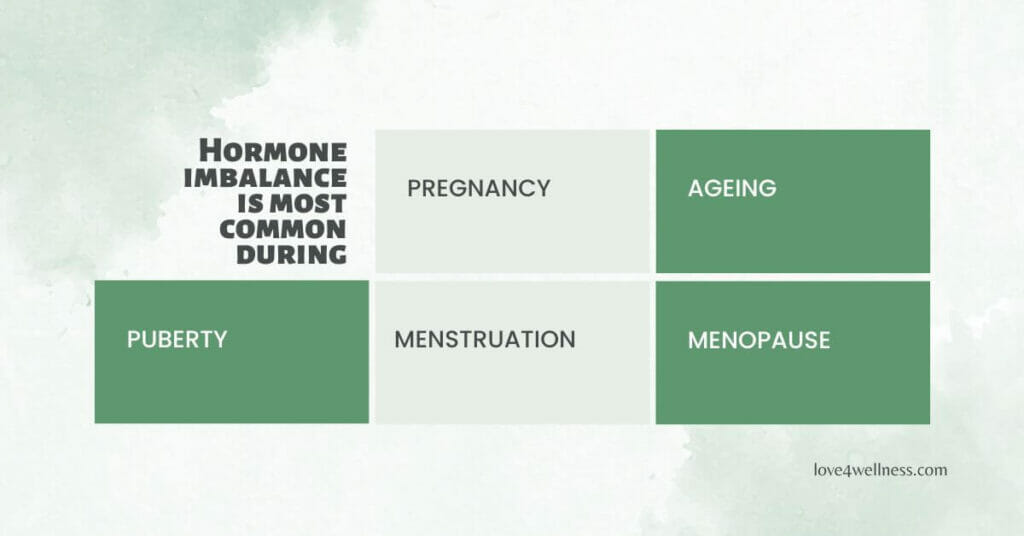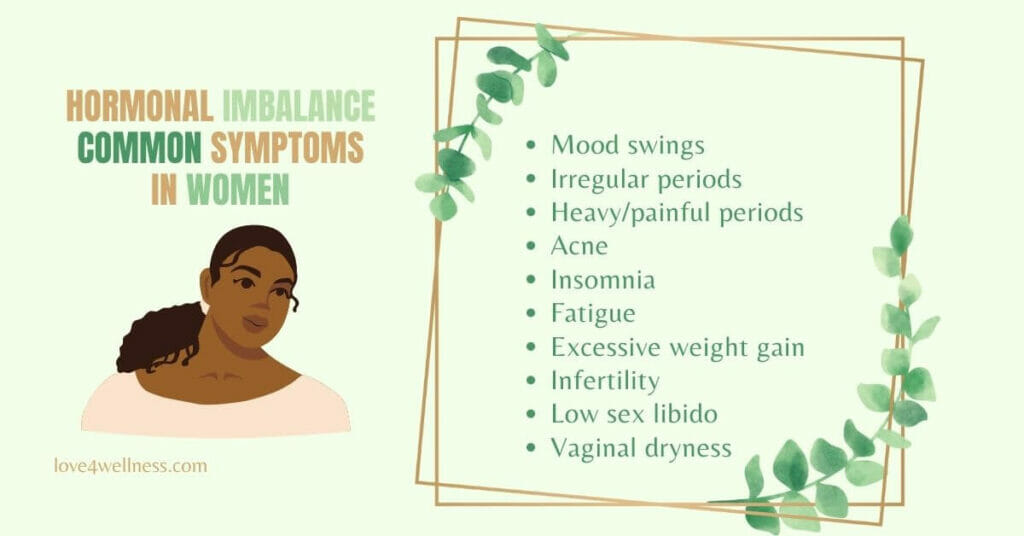At a glance: Hormones are chemical messengers that coordinate several bodily functions, including homeostasis (the body’s internal balance). Scientists have identified over 50 hormones in the human body. Of them, a handful is very important for the normal functioning of the body. With hormones, even small changes can have significant impact on your health. This article briefs on the importance of hormones, the stages in life when imbalances commonly occur, the problems a hormonal imbalance can cause, and also lists some foods that help balance hormones.
Hormones are the body’s chemical messengers. Your body will easily go out of normalcy when there is a hormonal imbalance. Correct levels of hormones are crucial for physical, mental, and emotional health. Though over 50 hormones are identified in the human body, and all have specific functions, about a handful cause trouble with abnormal levels.
Hormones are produced and regulated by the endocrine system and its glands. They work day and night, ensuring the correct levels of every hormone in the blood. The following infographic briefs about the endocrine system and its functions.
When do hormonal imbalances occur?
Hormonal imbalances occur in both men and women. Hormones naturally fluctuate at different stages of life, quite significantly during puberty, pregnancy, menstrual cycle, menopause, etc. Also, with age, levels of certain hormones decline.
What are the common symptoms of a hormonal imbalance?
Too much or too little of one or more hormones can cause various symptoms such as weight gain, mood swings, fatigue, disrupted sleep, etc. Generally, women are most affected by hormonal imbalances. The infographic below lists some of the common symptoms of hormonal imbalance in women.
Some of the common health problems caused by hormonal imbalances are:
- Irregular periods: Menstrual cycle is affected by several hormones, including the Luteinizing hormone, Follicle-stimulating hormone (FSH), Estrogen, and Progesterone. Abnormal levels of any of these hormones may cause an irregular menstrual cycle.
- Thyroid disorders: When any of the thyroid hormones (T3, T4) is abnormal, thyroid disorders occur. The two common conditions are hypothyroidism (low thyroid hormone levels) and hyperthyroidism (high thyroid hormone levels).
- Diabetes: Pancreas secretes the hormone insulin necessary for energy metabolism. A chronic condition that affects millions globally, diabetes is caused by inadequate insulin production or inefficient use of insulin by the body.
- Infertility: Hormone-related conditions such as PCOS, anovulation in females, and low testosterone levels in males can cause infertility.
- Acne: During puberty, hormones become active, stimulating oil glands on your face. And this may result in acne. Hormonal imbalances are common during pregnancy and menopause as well, which might cause acne in older women.
- Obesity: Excess body weight is another condition posing a threat to humankind. Several hormones play a vital role in maintaining body weight. For example, hypothyroidism slows down metabolism and can cause weight gain. Excess cortisol can also contribute to obesity. When the hormone Leptin is out of balance, your body may want to eat more.
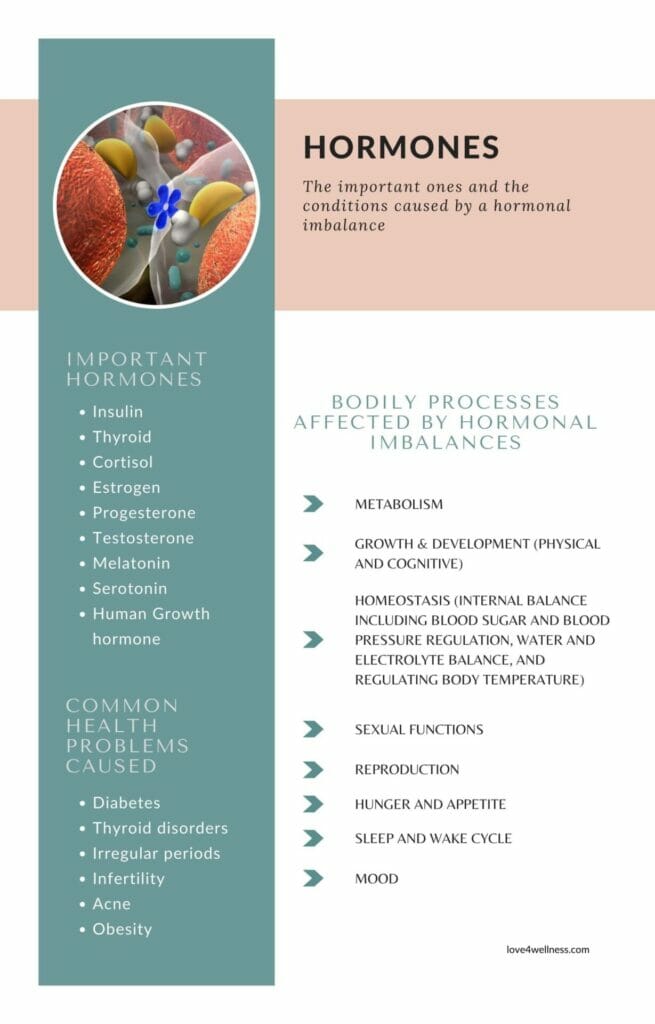
The good thing is mild hormonal imbalances can be managed with diet and lifestyle changes. Thus, making healthy changes to lifestyle and food choices can significantly improve hormonal imbalance.
The following are some hormone balancing foods that help regulate hormones at optimal levels.
You Might Also Like:
- The Three Important Aspects To Understand When Managing Diabetes And Ten Important Tips That Helps
- Eight Yoga Poses That May Help Treat Mild Hypothyroidism
- 13 Most Common Menopause Symptoms And Useful Tips To Manage
Hormone balancing foods
1. Cruciferous vegetables such as Spinach, Kale, Brocolli, and Cauliflower
The endocrine glands produce and release hormones into the bloodstream. You may think they are solely responsible for regulating hormones, but the liver also is involved to a large degree in regulating hormones.
When hormones, including sex hormones, thyroid hormones, and stress hormones, exceed the normal in the blood, the liver can eliminate the excess and excrete in the bile.
Phytochemical Indole-3-carbinol in cruciferous vegetables improves liver function and helps balance hormones. The vegetables also help reduce water retention and regulate hunger-related hormones (Leptin, Ghrelin, and NPY), thus helping to maintain a healthy weight.
Further, cruciferous veggies act as antioxidants eliminating free radicals. Certain studies show that a regular intake of these vegetables reduces estrogen-dominant cancer risk.
Note to thyroid patients: If you have a thyroid disorder, common advice would be to avoid cruciferous vegetables. This is because the goitrogens in them might inhibit the thyroid’s ability to use iodine which is crucial to produce thyroid hormones. However, goitrogens are significantly reduced with the cooking of cruciferous vegetables. So, no harm in consuming cooked cruciferous vegetables even if you have a thyroid disorder.
2. Healthy fats such as Avocado, Olive oil, Fish, Nuts, Seeds, Cocoa in dark chocolate, etc.
Eliminating fats from the diet can result in hormonal deficiency and imbalance. On the other hand, healthy fats improve hormone production and reduce inflammation.
Also, increased omega-3 fats facilitate hormone regulation and thus improve insulin resistance, reduce menstrual pain, increase fertility, reduce premature births in pregnant women, and reduce the risk of cardiovascular disease.
3. Colourful veggies such as Sweet potato, Tomatoes, Radish, Carrots, Brinjal, etc.
Rainbow-coloured vegetables not only satisfy your tastebuds but also provide the essential micronutrients that aid in hormone production.
Also, the gut microbiome aids in certain hormone regulation. The high fibre content from root vegetables enhances gut health and promotes hormone balance. Particularly, carrots are great for restoring estrogen imbalance, and sweet potatoes improve progesterone levels.
4. Quality Protein in every meal, such as dairy, eggs, lentils, soy, fish, etc.
Your body needs protein not only for the essential amino acids but also for protein-derived hormones called peptides. Peptides regulate growth, metabolism, appetite, stress, and reproduction. These are the hormones that maintain blood sugar levels stable and keep you feeling full longer.
5. Probiotics such as Yogurt, Kefir, and Kimchi
Certain hormones, such as cortisol and serotonin, are partially produced in the gut. Further, studies show that a thriving gut microbiome helps improve insulin resistance and manage blood sugar levels. It also enhances peptide secretion, thus reducing excessive hunger.
Hence, enhancing gut health and the gut microbiome is hugely beneficial for balancing hormones that affect appetite and energy metabolism.
6. Flaxseeds
Flaxseeds are rich in lignans, which contain phytoestrogen. Daily intake of flaxseeds promotes estrogen production and balances the body’s estrogen levels. It is particularly beneficial for women in the perimenopausal stage, improves fertility, and regularises menstrual cycles.
7. Magnesium-rich foods such as dark green, leafy vegetables, legumes, nuts, and seeds
Magnesium is a super mineral that is essential to:
- improve thyroid function
- regulate estrogen levels
- improve insulin sensitivity, hence managing blood sugar levels
- regulate stress hormones, cortisol and adrenaline
- improve serotonin
- improve nerve functions
The mineral is especially beneficial for PMS and PCOS.
8. Cinnamon
This little spice can lower insulin resistance, improve glucose and lipid metabolism, and encourage leptin production. Several studies have proven that cinnamon promotes leptin production. Leptin helps prevent hunger and regulate energy metabolism by not making you hungry when your body does not need energy. Hence, weight watchers can include cinnamon in their daily diet for healthy weight management.
The bottom line
Hormones are extremely important for your body’s normal functioning. Hence, when you sense a hormonal imbalance, you may start making lifestyle changes and healthy food choices. Including hormone-balancing foods in your daily diet will not only correct the imbalance but also help regulate hormones. However, if symptoms do not improve, consult a doctor.
Images: canva.com
